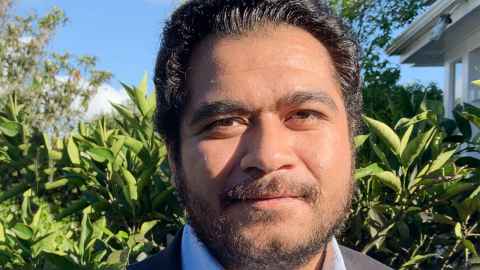Why we need to abolish prisons and honour te Tiriti o Waitangi
29 July 2022
If we are ever to see effective alternatives to prisons in Aotearoa, we need to achieve Tiriti-based constitutional transformation, writes Dylan Asafo.

Opinion: Most people believe that prisons are the only way we can keep society safe. But the data keeps telling us that prisons don't actually work.
As the Ministry of Justice reports, around 70 percent of people with previous convictions are re-convicted within two years following release from prison and around 49 percent are actually re-imprisoned after two years following release.
To be clear, these people are not re-convicted and re-imprisoned because they should have never been released and are just permanently "bad" and "dangerous" criminals.
Rather, as an independent group of justice experts found, these figures can be explained by the fact that prisons fail to address the underlying drivers of crime, including unresolved trauma from abuse, mental health, drug and alcohol abuse and of course, poverty.
To make this fact clear, the expert group also noted that 77 percent of people in prison have been victims of violence and 91 percent of people in prison have been diagnosed with a mental health or substance use disorder at some stage in their lifetime.
It is also important to know that prisons have actually never worked and have never been fair and just.

When the Crown introduced prisons to Aotearoa, they were used to imprison Māori who resisted the unjust theft of their lands. Ever since then, the unjust foundations of these institutions have remained.
Māori make up 52 percent of people in prison, despite making up only 15 percent of the total New Zealand population, and this has been the case for decades.
Let's be honest. These are not the statistics of an institution that works. They are the statistics of an institution that is fundamentally flawed and beyond repair.
So why don't we abolish prisons and focus our time and money on building better alternatives?
Unfortunately, some people mistakenly think that abolishing prisons is dangerous and will only result in lawlessness and anarchy.
But prison abolition is not actually about closing down prisons and letting people who have committed offences out free in the streets without consequences.
Abolition is about safe and gradual change by investing money in creating better alternatives to prisons, as well as addressing the very preventable drivers of crime noted above.
This is instead of what the government does now, which is investing around $1 billion each year into the failing prison system.
Are we willing to be brave, right terrible wrongs and try a different way of doing things? Or are we just going to keep going with the same failing systems that are fundamentally unjust?
As abolition requires such a big change in how resources are distributed in this country, it's impossible to achieve abolition with the current political and legal system we have today.
This is because our current system is incapable of strong transformative change, because we've seen time and time again that any positive progress for justice will always be rolled back by changes in governments who seek to gain power with baseless claims that we need to be tough on crime.
More importantly, our current system is fundamentally unjust as it was violently imposed in Aotearoa through the killing and imprisonment of Māori and unjust taking of Māori land.
Therefore, if we are ever to see effective alternatives to prisons in Aotearoa, we need to achieve Tiriti-based constitutional transformation.
This might seem like a complicated legal term, but it simply means transforming the country's legal and political system so that Māori are able to exercise tino rangatiratanga (sovereignty and self-determination) as promised in te Tiriti o Waitangi in 1840.
As the He Puapua report envisions, this can take place by reimagining a whole new governance system with three "spheres": (1) A 'rangatiratanga sphere' where Māori make decisions for Māori; (2) The "kāwanatanga sphere" where the Crown will make decisions for non-Māori; and (3) The "relational sphere" where Māori and the Crown will share governance over issues of mutual concern.
This reimagined system is completely different to the unjust system we have now, where the Crown's "kāwanatanga sphere" is so big that the other two other spheres can barely be seen.
Of course, pursuing abolition through Tiriti-based constitutional transformation, might seem like an impossible and ridiculous idea to many, especially to those of us who are not Māori.
Admittedly, these big plans raise many important questions that we don't have answers to just yet.
However, the point is that successful systems take a lot of time and effort to imagine, design and implement. This means that we as non-Māori need to be brave and commit to finding these answers with Māori at the helm.
The question for everyone in Aotearoa is then: are we willing to be brave, right terrible wrongs and try a different way of doing things? Or are we just going to keep going with the same failing systems that are fundamentally unjust?
This article reflects the opinion of the author and not necessarily the views of the University of Auckland.
First published in the New Zealand Herald.
Media contact
Sophie Boladeras | Media adviser
M: 022 4600 388
E: sophie.boladeras@auckland.ac.nz